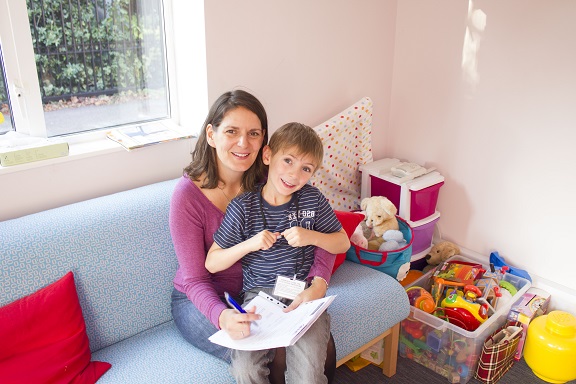
How we collected the data
CALM I
The doors of the clinic opened in September 2014.
Children visited CALM for a 4-hour assessment of their attention, language, memory, executive function, speed of processing, phonological and academic achievements. Accompanying parents / carers complete a range of questionnaires relating to family history, physical and mental health, and behaviour.
A report was provided to the referring agent following the assessment, which summarised the child’s strengths and weaknesses. This could be shared with the family to inform ongoing support.
At the time of th e clinic visit, children were asked if they would provide a saliva sample and if they would like to take part in the neuroimaging part of the project in a separate visit to the CBU MRI facility.
e clinic visit, children were asked if they would provide a saliva sample and if they would like to take part in the neuroimaging part of the project in a separate visit to the CBU MRI facility.
Recruitment for this phase closed in March 2018. We have the following data:
- imaging data n= 347
- cognitive and behavioural data n=805
- genetic data n= 572
This data is available as an managed-access database here.
From autumn 2018, typically developing (TD) children aged 5 to 18 years have been recruited through schools attended by children who have already been seen at the CALM clinic. Data collection is ongoing. We currently have the following data:
- cognitive and behavioural data n= 180
- imaging data n= 89
- genetic data n= 53
This data is available as an managed-access database here.
CALM II
In May 2019 we began the longitudinal follow-up of all children in the CALM I sample. This is the first longitudinal assessment of the cognitive underpinnings of learning difficulties.
In addition to repeating the assessments administered in CALM I, we invited all children back for scanning. We completed data collection for CALM II in late 2022.
This data is available as an managed-access database here.

 Centre for Attention Learning and Memory
Centre for Attention Learning and Memory